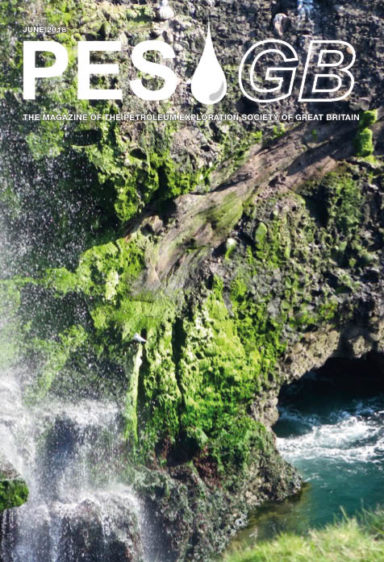PESGB June 2018
It’s all about the people

I am stood on the terrace of an opulent hotel, watching the sun dissolve into the Arabian Sea, surrounded by an eclectic group of technologists from the space exploration, military defence, aeronautics and industrial robotics industries. It is the end of January 2002 and I had just assembled a diversity of expertise alongside members of the international oil and gas engineering community. The aim of this event was to contemplate the feasibility of remotely operating oil and gas production facilities in the harsh desert interior of the Arabian Peninsula where summer temperatures often exceeded 50°C. It had been an exciting two days of discussion with more than a hundred people present. The technologies of robotics and sensors, designed to replicate or exceed human senses, were moving from science fiction into science fact and the transferral of ideas from other industry sectors proved to be fertile ground.
Despite spending two days knee-deep in technology, it was the contribution of a television news producer that proved to be the most significant. The requirements for the remote broadcast of television news had diminished from a vast crew to often just an individual with a camera (and, nowadays, just a smart phone with a data connection). The producer told us that the greatest challenge was not necessarily in the remote deployment of electronic news gathering technology, but in the retraining of a workforce with a new range of skills to match this new future. She warned us that this is where we should focus our efforts, as this had been underestimated in her industry. It was all about the people.
I was reminded of this occasion on the publication last month of the UKCS Workforce Dynamics report by the Offshore Petroleum Industry Training Organisation (OPITO) and Robert Gordon University, which looks ahead to 2035 and the changing skills needs of a transitioning UK energy industry. For 2018, they estimate that there are 170,000 direct and indirect jobs in the UK oil and gas sector, having lost 70,000 jobs during the 2014-2017 downturn (10% year-on-year). To maintain the UK government’s 2035 energy vision alongside decline rates and natural attrition through retirement, OPITO anticipates that 40,000 more staff will need to be recruited between 2018 and 2035, and that the whole staff base would have to be upskilled. Notably, they looked at the role of automation and remote operations, along with data science, material technology and cyber security – overall the training needs of a workforce required for a transformed industry. They suggest that, by 2035, 10% of the workforce could be in roles not existing today.
Recalling my valuable remote operations lessons of 2002, I can foresee that the PESGB will need to play its own role in reskilling a UK and international workforce and staying ahead of the changes anticipated in the OPITO report. The PESGB recently conducted a survey among its lapsed and departing members. Whilst this can be a painful introspective exercise, it is valuable for the society as it partly allows us to diagnose the value of our offering to our ongoing active and inactive membership. The survey has highlighted the value gaps that have emerged between those employed in the oil and gas sector and those unemployed or forced to change careers. Perhaps most of all, it has highlighted the demographic divisions that have deepened and widened across our workforce, from “Baby Boomer” to “Generation Z”.
As a society, we are going to have to work hard to engage a diverse membership with very different needs as we all face the challenges of a transitioning industry. We will need to retain the knowledge and experience that has got us to this point, whilst seizing the many opportunities that emerge from diversification and innovation in the future. We have thousands of members and we need to capitalise on the hindsight and foresight within the community. Your ideas are always very welcome.
It’s still all about the people. Don’t be shy.


